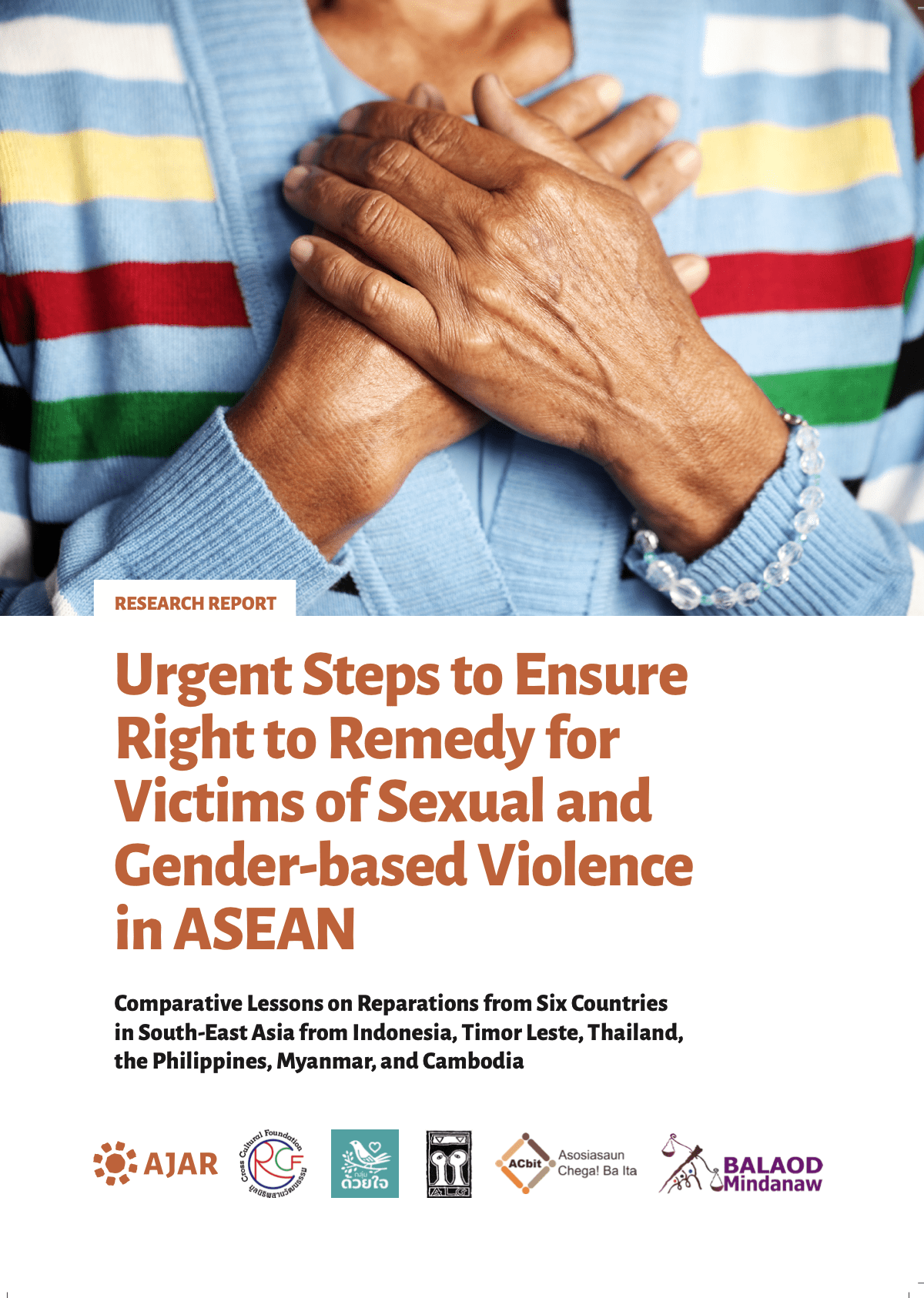For over a year, the Transitional Justice Asia Network collected information on how five members of ASEAN had dealt with legacies of conflict, focusing specifically in the areas of gender and reparations. The five studies included Aceh in Indonesia, Myanmar, southern Thailand, Cambodia, and Philippines. A case study from Timor-Leste was also included in anticipation of its membership to the community of nations.
The studies found that women and other survivors of gender-based violence in conflict are mostly invisible and forgotten by their governments. In some contexts, survivors are ageing and facing new challenges. Although women and girls were overwhelmingly the target of sexual and other gender-based violence, we found men and boys also suffered. In addition, LGBTQI+ people in some contexts were specifically targeted for violence because of their sexual orientation or gender identity.
In many contexts, years after conflict layers of invisibility are still being peeled away. This invisibility means a generation has lost the opportunity to learn from history and the chance to commit to transforming gender norms that have contributed to such widespread violence. In other contexts, fresh violence has highlighted the need to find innovative ways to provide urgent reparative measures for survivors.
Policy-makers have deprioritized pushing for accountability for sexual and other gender- based violence during conflict, and have denied victims recognition and repairr. A wall of official denial and silence, enabled by male-dominated justice systems, means that generations of victims in countries across ASEAN continue to suffer without recognition or adequate support, let alone justice and reparations. Many remain vulnerable to further violence.
We hope this report will lead to a reaffirmation of the promise of remedy and repair, and that ASEAN countries can renew their commitment to a culture of accountability and care for victims of human rights violations in our communities.
